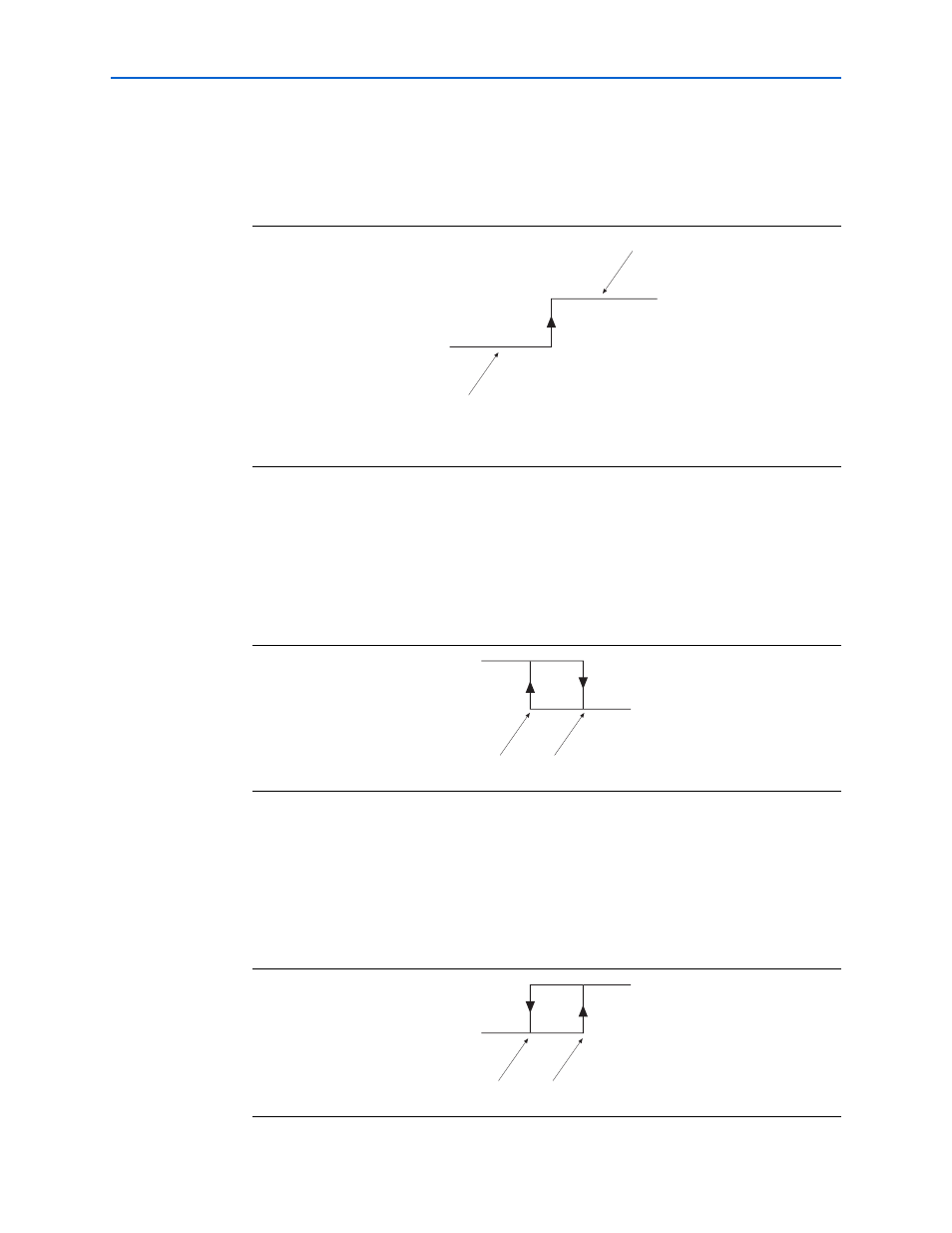Altera POS-PHY Level 2 and 3 Compiler User Manual
Page 42

3–14
Chapter 3: Functional Description
Parameters
POS-PHY Level 2 and 3 Compiler User Guide
© November 2009
Altera Corporation
Preliminary
For the Atlantic master sink, the dav signal is an input. The slave indicates to the
master that it has data by asserting dav. The master then tries to empty the slave FIFO
buffer.
Figure 3–12
shows the behavior of the dav signal. FIFO buffer burst is not
applicable. FIFO buffer remote burst is not applicable.
For the Atlantic slave sink, the dav signal is an output. The dav signal high indicates
that there is space for more data. When the FIFO buffer is below full threshold, dav is
high. When the FIFO buffer is filling, dav remains high until the FIFO buffer reaches
burst threshold. When the FIFO buffer is emptying, dav remains low until the FIFO
buffer reaches full threshold.
Figure 3–13
shows the behavior of the dav signal. FIFO
buffer remote burst is not applicable.
For the Atlantic slave source, the dav signal is an output. When dav is high, there is
data to send. When the FIFO buffer is above the empty threshold, dav is high. When
the FIFO buffer is filling, dav remains low until the FIFO buffer reaches empty
threshold. When the FIFO buffer is emptying, dav remains high until the FIFO buffer
reaches burst threshold.
Figure 3–14
shows the behavior of the dav signal. FIFO
buffer remote burst is not applicable.
Figure 3–12. Behavior of the dav Signal as an Input to the Atlantic Master Sink
Note to
Figure 3–12
:
(1) The slave asserts dav high for two reasons: it has passed its threshold, or an EOP has occurred.
Figure 3–13. Behavior of the dav Signal—Atlantic Slave Sink
Figure 3–14. Behavior of the dav Signal—Atlantic Slave Source
Slave has no data
dav
1
0
Slave has data
dav
1
0
Full
threshold
Burst
threshold
Burst
threshold
Empty
threshold
dav
1
0